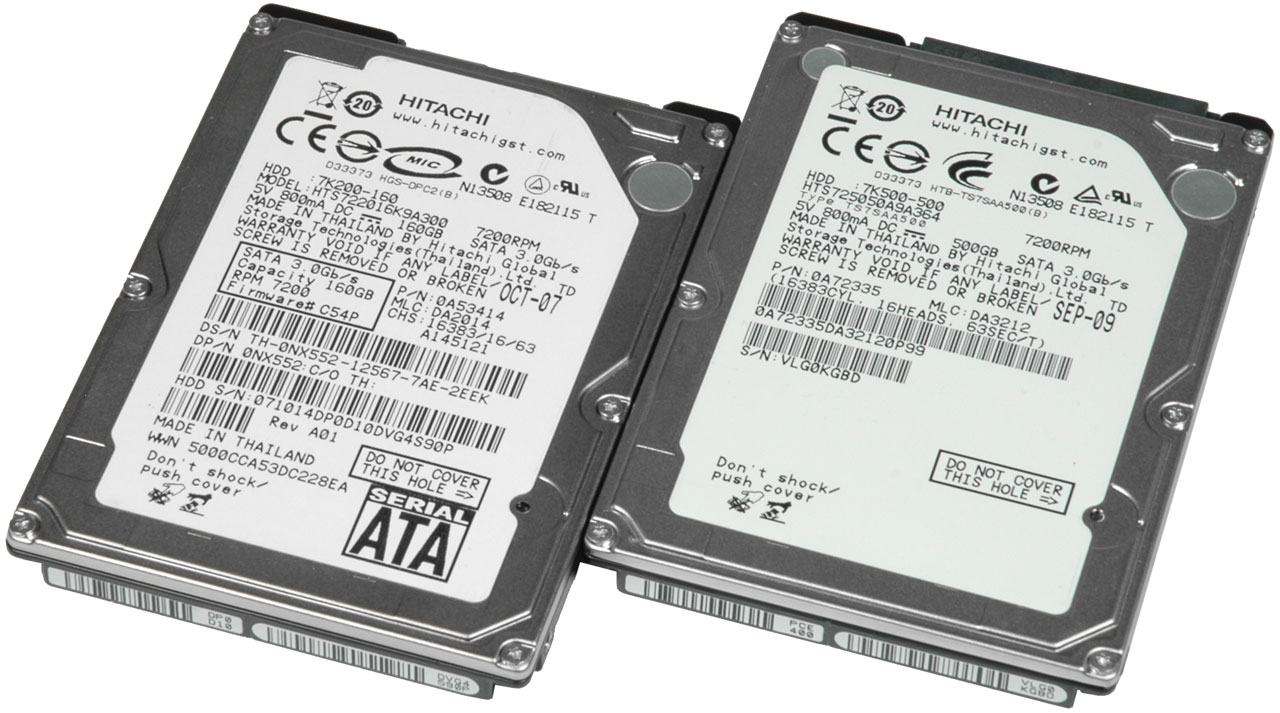Upgrading Your Notebook Hard Drive: Does It Make Sense?
Get Tom's Hardware's best news and in-depth reviews, straight to your inbox.
You are now subscribed
Your newsletter sign-up was successful
Notebook HDD Upgrade: 7,200 RPM Yesterday And Today
We recently looked at the impact of a hard drive upgrade on a desktop PC to find out whether or not it's worth replacing a three-year-old disk with a brand new one. Our scenario involved the now-common choice of upgrading from Windows XP or Vista to Windows 7, and starting over with new storage at the same time. We found small benefits on the power consumption side and more noticeable increases on the performance side.
In short, if you intend to make major modifications to your system, then it makes a lot of sense to question your hard drive. Capacity, performance, and power consumption have reached new levels. But what are the results on a mobile machine, where many of those factors end up being multiplied? Can you get noticeably more performance or increase the battery life if you exchange the hard drive?
Desktop drives have marched straight up to 2TB capacities, but progress has been even more extensive on the mobile side. While 2.5” hard drives remain much slower than desktop hard drives, capacities have reached 640GB, and the drives have been more finely tuned for power consumption and efficiency. Additionally, growth in the mobile space has been more substantial than in the desktop segment.
Mobile HDDs typically fall into two markets: mainstream and high-performance. Mainstream drives often provide the highest capacities at a 5,400 RPM spindle speed while performance models rotate at a faster 7,200 RPM speed, albeit at smaller capacity points. Mainstream hard drives are available at up to 640GB capacity (9.5mm z-height) while the high-performance segment has reached 500GB.
We took a Dell Latitude D630 laptop running a 160B Hitachi Travelstar 7K200. This was one of the first mobile 7,200 RPM SATA hard drives. Hitachi recently released its Travelstar 7K500, which is two generations newer than the 7K200. What’s the 7K500's impact on performance for our Core 2 notebook? Will the new drive be efficient enough to increase battery life? Let’s check it out.
Get Tom's Hardware's best news and in-depth reviews, straight to your inbox.
Current page: Notebook HDD Upgrade: 7,200 RPM Yesterday And Today
Next Page Old: Hitachi Travelstar 7K200